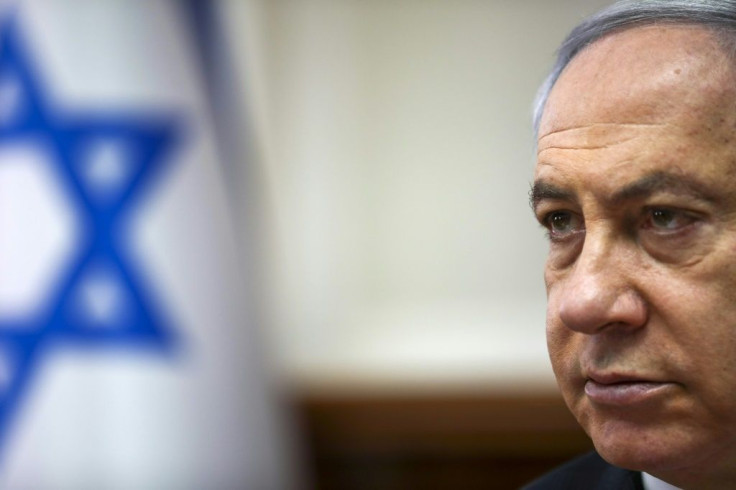Israel Readies For More Tricky Coalition Talks

Talks to form Israel's next government will ramp up again this week, but an agreement to form a coalition may require a political miracle.
Right-wing Prime Minister Benjamin Netanyahu's Likud party and its allies won 58 seats in the March 2 election -- three short of a parliamentary majority.
Main challenger Benny Gantz, who heads the centrist Blue and White Party, vowed Saturday that the "days of Netanyahu's reign are over", but whether Gantz could take his job is unclear.
Here are five scenarios that could unfold as Israel's divided political camps seek to avoid a fourth election, after inconclusive polls in April and September failed to produce a government.
Netanyahu again appears to have a cohesive bloc behind him.
His Likud took 36 seats in last week's vote -- the party's best-ever performance with Netanyahu as leader.
Two ultra-Orthodox parties allied to the premier, Shas and United Torah Judaism, won 16 seats.
The six seats won by right-wing Yemina take the Netanyahu camp to 58.
It is possible three lawmakers from Blue and White could switch allegiance to Netanyahu, in part to stave off a fourth election.
But with Netanyahu's corruption trial due to start on March 17, personal opposition to him within Blue and White's ranks may also be hardening.
The secular, nationalist Yisrael Beiteinu party won seven seats, putting its leader Avigdor Lieberman in the familiar position of kingmaker.
He previously served as defence minister under Netanyahu but declined to back him following both 2019 votes, partly over what he described as the premier's capitulation to ultra-Orthodox interests.
The Moldovan-born Lieberman, who enjoys wide support within Israel's Russian-speaking community, posted on Sunday his conditions for joining a coalition.
They include support for a bill that sets quotas for ultra-Orthodox military enlistment, legislation that could be anathema to Netanyahu's conservative religious allies and may sink coalition talks.
Days after the vote, anti-Netanyahu lawmakers began publicly backing legislation to prevent an individual under criminal indictment from forming a new government -- a measure aimed squarely at the prime minister.
The anti-Netanyahu camp is deeply divided, but it may come together to secure the 61 votes needed to block him from serving as premier until his case is resolved.
If Netanyahu steps aside to stand trial or is barred by act of parliament, the prospect of a unity government might increase.
Gantz has ruled out joining a Netanyahu-led government largely because of the indictments.
But with Netanyahu sidelined, even temporarily, there are no major ideological barriers preventing a Likud-Blue and White alliance.
Blue and White, which won 33 seats, is backed by the centre-left alliance of Labour-Gesher-Meretz, which won seven seats.
Gantz on Sunday also tweeted his acceptance of Lieberman's terms for forming a coalition.
Lieberman's backing would take Blue and White to 47 seats, meaning support from the mainly Arab Joint List would be essential to form a coalition.
Such a coalition is unlikely for several reasons.
The Joint List had backed Gantz following the September vote but positions have since hardened.
Joint List lawmaker Ahmed Tibi said Sunday "there are many obstacles on the road to cooperation with Blue and White.
"Things that were said in the election campaign were negative and inappropriate," he added.
The nationalist Lieberman and the officially anti-Zionist Joint List, which includes three Islamists from the Balad party in its ranks, have almost no political common ground.
Gantz on Saturday pledged to do "his best" to avoid a fourth election, but some fear it is inevitable.
© Copyright AFP 2024. All rights reserved.





















